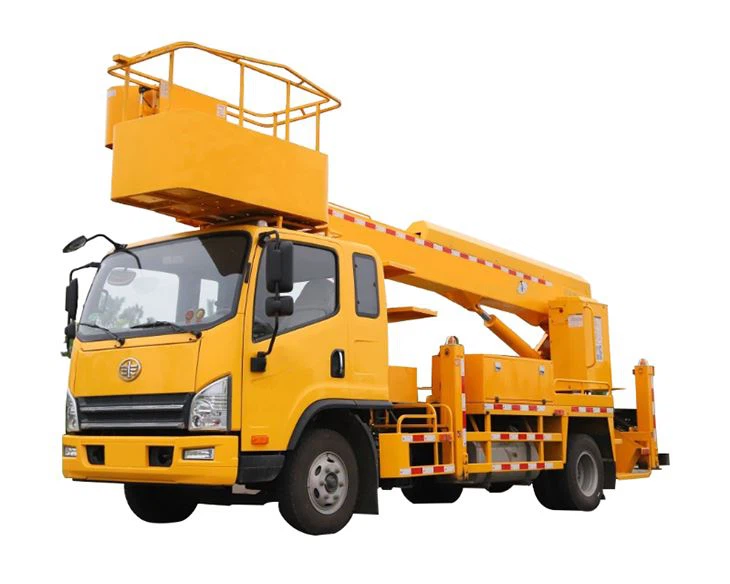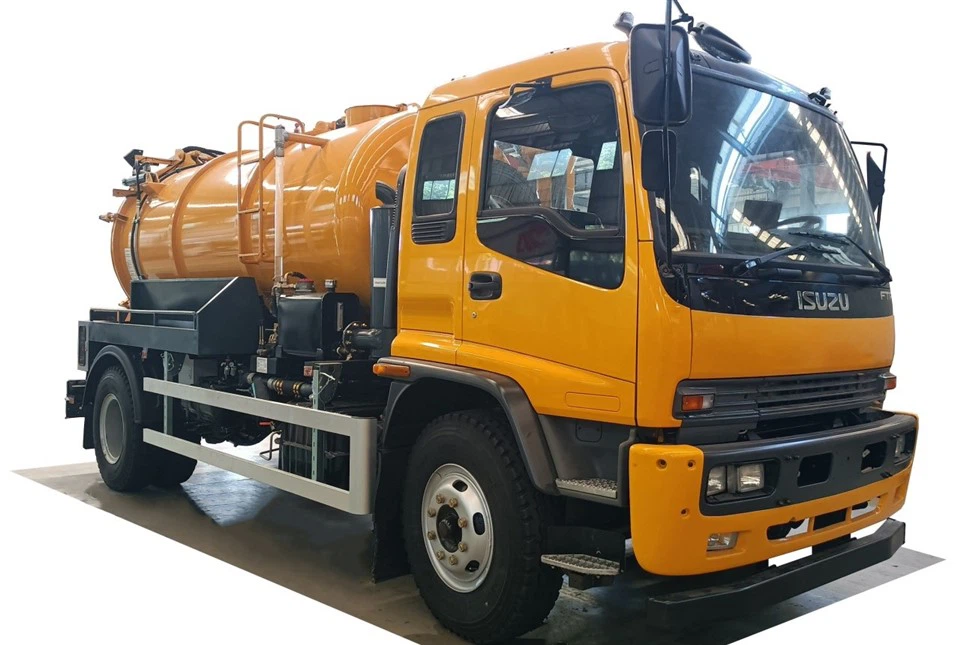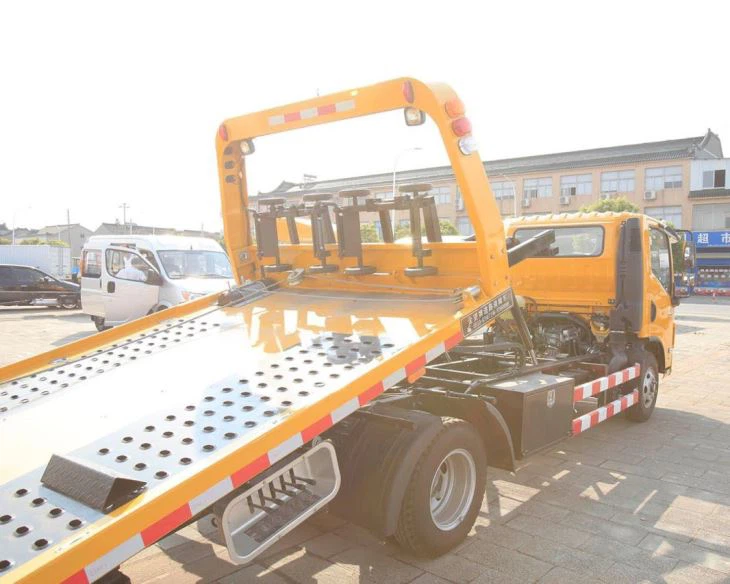Tow Truck Classification: Understanding Different Types of Tow Trucks

Introduction
Tow trucks play a crucial role in roadside assistance, vehicle recovery, and transportation. With various types designed for specific tasks, understanding tow truck classification can help both consumers and professionals choose the right vehicle for their needs. In this article, we will explore the different types of tow trucks, their features, and their applications, providing a comprehensive guide to help you navigate the world of towing. This knowledge is essential for vehicle owners, automotive professionals, and even those interested in the towing industry.
Types of Tow Trucks

1. Hook and Chain Tow Trucks
Hook and chain tow trucks are one of the oldest types of towing vehicles. They use hooks and chains to lift a vehicle, typically from the rear. This method is effective for towing vehicles that are immobilized but can cause damage to the towed vehicle.
Features
- Simple design and operation
- Cost-effective for basic towing needs
- Limited to specific vehicle types
Common Uses
These trucks are commonly used for tow-away situations in parking lots and for recovering vehicles from accidents. However, they are less common nowadays due to the potential for vehicle damage.
2. Flatbed Tow Trucks
Flatbed tow trucks consist of a large bed that can be tilted or lowered to ground level, allowing vehicles to be driven or winched onto the bed.
Features
- Very versatile; can carry various vehicle types
- Prevents damage to towed vehicles
- Equipped with winches for non-operational vehicles
Common Uses
Flatbed trucks are ideal for long-distance towing, transporting luxury vehicles, and handling vehicles that cannot be driven.
3. Integrated Tow Trucks
Integrated tow trucks combine the towing mechanism with the truck’s traditional structure. They are often seen in heavy-duty applications and can haul larger vehicles.
Features
- Integrated towing system for enhanced stability
- Higher towing capacity
- Suitable for heavy-duty applications
Common Uses
These trucks are primarily used for towing large trucks, buses, and construction equipment.
4. Wheeled Lift Tow Trucks
Wheeled lift tow trucks are known for their versatility. They can lift a vehicle by its tires, allowing for easy towing without contacting the vehicle’s body.
Features
- Minimizes damage to towed vehicles
- Fast and efficient towing capability
- Suitable for a range of vehicle types
Common Uses
These trucks are used in various roadside assistance scenarios and are popular among towing companies due to their efficiency and effectiveness.
5. Dollies
Dollies are small, two-wheeled trailers that allow vehicles to be towed with their front wheels off the ground.
Features
- Lightweight and easy to maneuver
- Cost-effective for light towing
- Effective for front-wheel drive vehicles

Common Uses
Dollies are commonly used by smaller towing companies or for residential towing needs.
6. Heavy-Duty Tow Trucks
Heavy-duty tow trucks are specially designed for towing large vehicles, including buses, motorhomes, and trucks over 26,000 pounds.
Features
- Enhanced towing capacity and stability
- Equipped with additional axles for support
- Advanced recovery equipment included
Common Uses
Heavy-duty trucks are essential for long-distance recovery operations and are often used in emergency response scenarios.
Choosing the Right Tow Truck
Choosing the right tow truck depends on several factors, including the type of vehicle being towed, the distance, and the towing environment. Here are some tips to consider:
1. Assess the Vehicle Type
The weight and size of the vehicle will significantly influence your choice. For example, a flatbed tow truck is ideal for luxury or classic cars, while heavy-duty trucks are necessary for larger vehicles.
2. Distance of Towing
If you’re towing a vehicle over a long distance, using a flatbed or integrated tow truck is advisable to minimize wear and tear on the vehicle.
3. Towing Environment
Rural and off-road environments may require trucks equipped with additional traction systems, while urban settings might benefit from maneuverable dolly systems.
Safety Considerations in Towing
Safety is paramount in the towing industry. Here are key considerations:
1. Vehicle Weight Limits
Always adhere to the weight limits specified by the tow truck manufacturer to prevent accidents or tow truck failure.
2. Proper Hook-up Techniques
Ensure the vehicle is properly secured before towing. Incorrect hook-up can lead to accidents on the road.
3. Road Conditions
Assess road conditions before towing. Adverse weather conditions can significantly affect towing safety.
Tow Truck Regulations
Towing operates under strict regulations that vary by location. It is essential to understand local laws to avoid legal issues:
1. Licensing Requirements
Many regions require specific licenses or certifications to operate tow trucks. It’s important to ensure compliance with local laws.
2. Vehicle Equipment Standards
Different regulations may dictate the equipment necessary on tow trucks, such as lighting, reflective gear, and safety chains.
Trends in the Towing Industry
The towing industry is evolving with technological advancements:
1. Eco-Friendly Tow Trucks
As technology advances, electric and hybrid tow trucks are emerging, aiming to reduce environmental impacts.
2. Advanced Recovery Equipment
Modern tow trucks are increasingly equipped with technology such as GPS for better efficiency and tracking.

Cost of Towing Services
Understanding the cost structure is crucial for consumers:
1. Average Towing Rates
Towing rates can vary based on various factors including truck type, distance, and local market rates. Here’s a simple breakdown:
| Type of Tow Truck | Average Cost |
|---|---|
| Hook and Chain | $75 – $125 |
| Flatbed | $100 – $200 |
| Heavy-Duty | $200 – $400+ |
2. Additional Fees
Be aware of additional charges that may apply, such as fuel fees, roadside assistance fees, and storage fees.
Frequently Asked Questions (FAQs)
1. What is the best type of tow truck for my vehicle?
The best type of tow truck depends on your vehicle’s size, its condition, and the distance it needs to be towed. Flatbed tow trucks are generally suitable for most vehicles.
2. How much does it cost to tow a car?
The cost can range from $75 to $200 for standard towing services, but prices can vary based on your location and the type of tow truck used.
3. How do I know if my vehicle needs towing?
If your vehicle is disabled or has been involved in an accident and is not drivable, it likely needs towing. Always consult with a professional if unsure.
4. Can I tow a car without proper equipment?
No, it is unsafe and illegal to tow a vehicle without the proper equipment and truck. Always use a certified tow truck and professional services.
5. Are there regulations for tow truck operators?
Yes, tow truck operators must comply with various regulations, which include licensing, insurance, and equipment standards. Always ensure your operator meets local requirements.
6. What safety precautions should I take during towing?
Use proper signaling, ensure secure fittings, avoid overloading, and consider environmental factors like weather or road conditions to ensure safety.
